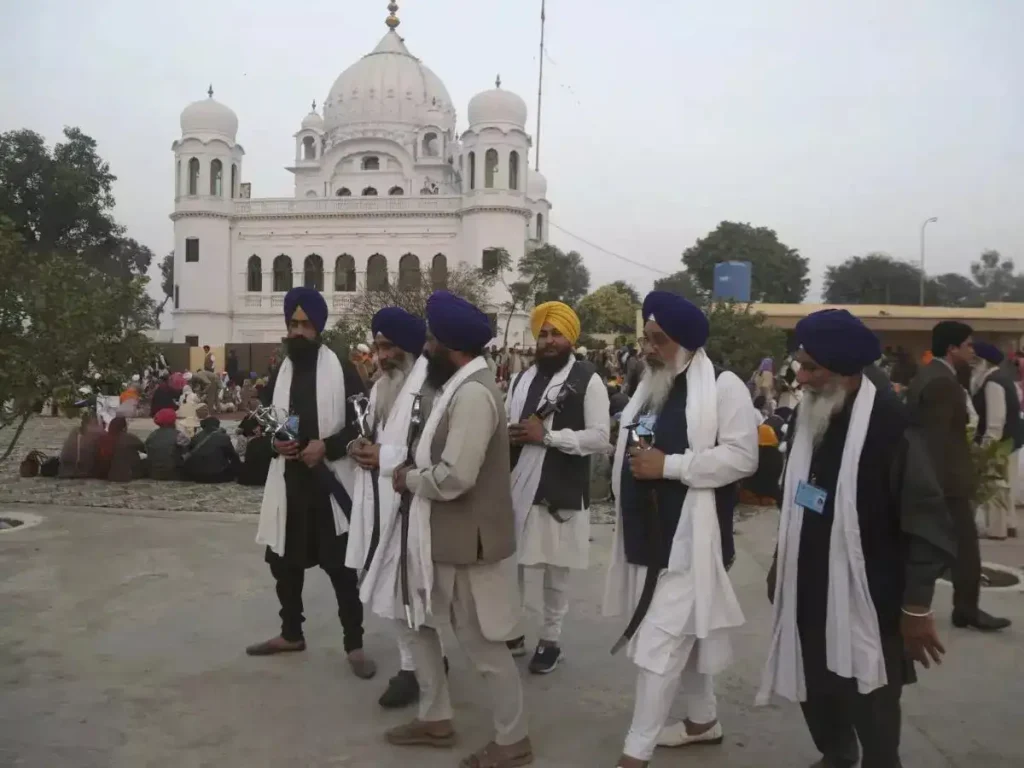Pakistan on Tuesday welcomed dozens of Sikh pilgrims from India in the first major border crossing since deadly clashes in May forced the closure of the Wagah-Attari land route between the two nuclear-armed neighbours. The visit marks a rare moment of people-to-people contact amid ongoing military and diplomatic strain between Islamabad and New Delhi.
According to Pakistan’s High Commission in New Delhi, more than 2,100 pilgrims were granted visas to attend the 10-day festival celebrating the 556th birth anniversary of Guru Nanak, the founder of Sikhism. The event, starting Wednesday, will see pilgrims gather at Nankana Sahib — Guru Nanak’s birthplace, located about 80 kilometres west of Lahore — before visiting other revered sites including Kartarpur, where the guru is buried.
The Pakistan Welcomes Sikh Pilgrims from India for Guru Nanak Anniversary Amid Border Tensions even as tensions remain high between the two countries following the worst cross-border fighting since 1999. The deadly May clashes, involving missiles, drones, and artillery fire, left more than 70 people dead and led to the closure of the Wagah-Attari border for general traffic.
On Tuesday morning, pilgrims were seen lining up on the Indian side of the border, carrying luggage and chanting prayers as they prepared to cross. AFP journalists on the Pakistani side reported that dozens of Indian Sikhs entered the country and were warmly received with flowers and rose petals by Pakistani officials.
While Indian media said around 1,700 pilgrims were expected to cross, there was no official confirmation from New Delhi. Pakistan’s High Commission described the move as part of Islamabad’s continued effort to promote “inter-religious and inter-cultural harmony and understanding.”
However, the Kartarpur Corridor — the visa-free route opened in 2019 allowing Indian Sikhs to visit the temple without crossing the main border — remains closed following the recent conflict. Despite ongoing hostilities, Pakistan’s gesture highlights its commitment to religious freedom and cultural diplomacy, reaffirming the nation’s respect for Sikh heritage and its historical ties to the faith.


